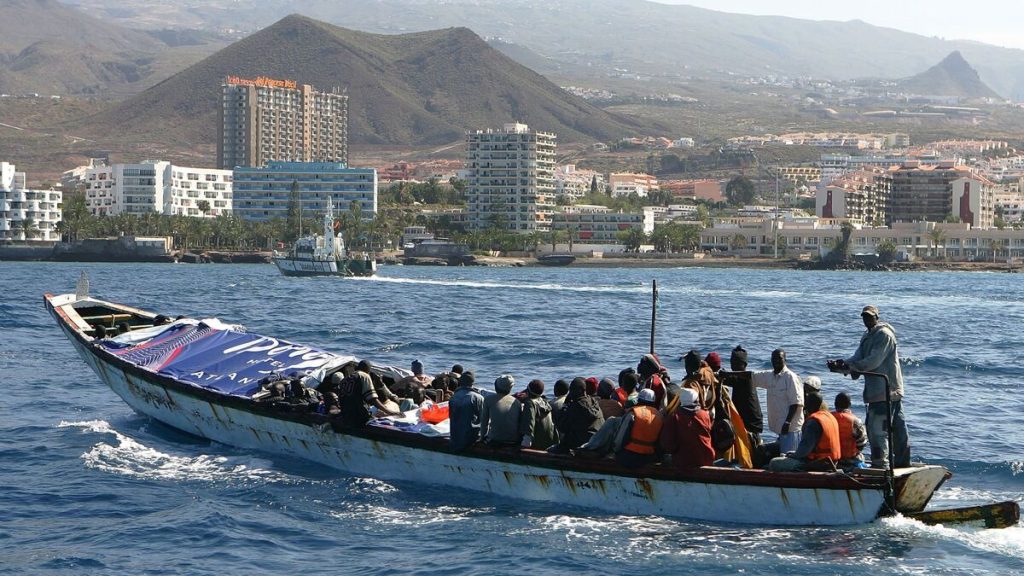The Canary Islands have seen a record 41,425 migrants arriving by boat in 2024, marking a new high for the second consecutive year, according to Spain’s interior ministry.
The figure, recorded between January 1 and November 30, surpasses the 2023 total of 39,910 migrants and reflects the increasing popularity of the Atlantic migration route. A total of 610 boats have landed on the archipelago’s shores so far this year, compared to 530 during all of 2023.
This surge comes as Mediterranean migration routes face tighter controls, pushing more migrants fleeing poverty and conflict in Africa to attempt the perilous journey to the Canary Islands.

The Canary Islands, home to just 2.2 million people, have struggled to cope with the influx. Regional officials have expressed concerns over strained resources, and Spanish Prime Minister Pedro Sánchez toured West African nations earlier this year to strengthen efforts to curb migration from key departure points, including Mauritania, Senegal, and the Gambia.
Despite their relative proximity to North Africa, the Atlantic route to the Canary Islands is particularly hazardous due to strong currents and overcrowded, unseaworthy vessels. Since 2014, nearly 5,000 migrants have died attempting the journey, according to the International Organization for Migration.
Spain remains one of Europe’s top three entry points for migrants, alongside Italy and Greece. Across the nation, 56,976 migrants have entered illegally so far in 2024, already exceeding last year’s total of 56,852.
With migration numbers continuing to rise, authorities in the Canary Islands and Spain face mounting pressure to find sustainable solutions to this humanitarian and logistical crisis.


